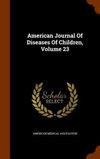Neutropenia in an extremely premature infant treated with recombinant human granulocyte colony-stimulating factor.
American journal of diseases of children
Pub Date : 1991-07-01
DOI:10.1001/ARCHPEDI.1991.02160070104030
引用次数: 47
Abstract
Neutropenia in the newborn is often associated with sepsis, maternal hypertension, or prematurity. We describe a 654-g infant born at 30 weeks' gestation by cesarean section due to severe maternal hypertension. His course was complicated by five episodes of sepsis, including three with group B streptococcus. The results of hematologic and immunologic studies were normal except that absolute neutrophil counts were low (less than 1 x 10(9)/L) with intermittent increases during sepsis. Human recombinant granulocyte colony-stimulating factor administered subcutaneously (10 micrograms/kg per day initially) resulted in an absolute neutrophil count of greater than 30 x 10(9)/L within 2 weeks. The dosage was lowered and the absolute neutrophil counts were maintained at 8 to 12 x 10(9)/L with no further septic episodes. The human recombinant granulocyte colony-stimulating factor therapy was discontinued after 7 months, and the patient remained healthy with an absolute neutrophil count of greater than 2 x 10(9)/L. Thus, treatment with human recombinant granulocyte colony-stimulating factor may be useful as a temporary measure for neonatal neutropenia associated with sepsis. A controlled, clinical trial is warranted.用重组人粒细胞集落刺激因子治疗极早产儿中性粒细胞减少症。
新生儿中性粒细胞减少症常与败血症、产妇高血压或早产有关。我们描述了一个654克的婴儿出生在妊娠30周剖宫产由于严重的产妇高血压。他的病程因5次败血症而变得复杂,其中3次是B群链球菌。血液学和免疫学检查结果正常,但绝对中性粒细胞计数低(低于1 × 10(9)/L),在败血症期间间歇性增加。皮下给予人重组粒细胞集落刺激因子(最初每天10微克/千克),2周内中性粒细胞绝对计数大于30 × 10(9)/L。降低剂量,中性粒细胞绝对计数维持在8 ~ 12 × 10(9)/L,没有进一步的脓毒症发作。7个月后停止人重组粒细胞集落刺激因子治疗,患者保持健康,绝对中性粒细胞计数大于2 × 10(9)/L。因此,人重组粒细胞集落刺激因子治疗可能是新生儿中性粒细胞减少与败血症相关的临时措施。有必要进行对照临床试验。
本文章由计算机程序翻译,如有差异,请以英文原文为准。
求助全文
约1分钟内获得全文
求助全文

 求助内容:
求助内容: 应助结果提醒方式:
应助结果提醒方式:


